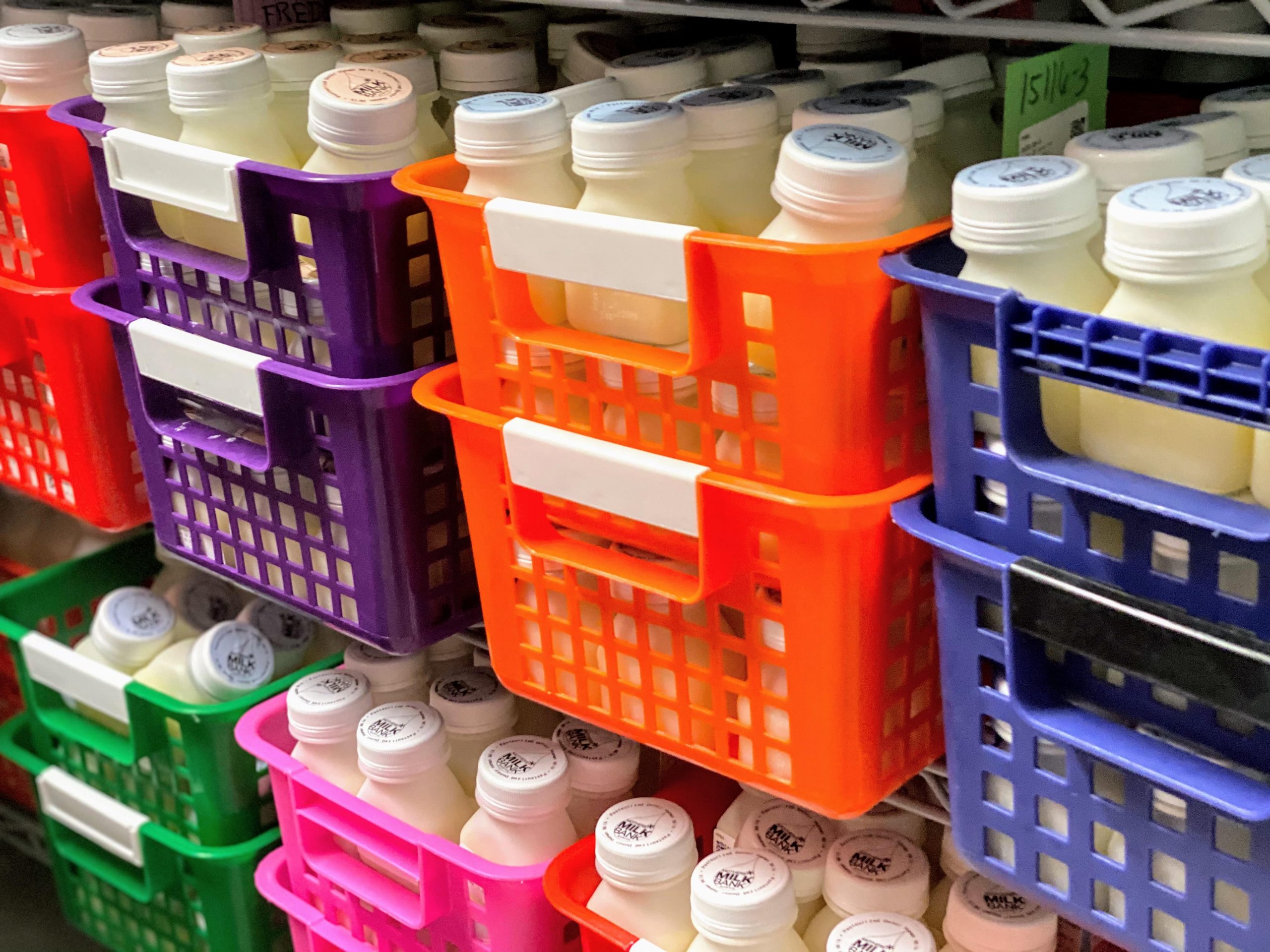Donor Human Milk Processing Fee
Mothers’ Milk Bank at Austin charges a processing fee of $4.65 per ounce, an amount that offsets the substantial costs of operating a modern, standards-compliant, non-profit milk bank. These costs include recruiting, screening (including blood testing), and providing ongoing support for milk donors; equipping remote depots for donated milk; inbound overnight shipping from remote depots and operating a courier service for closer depots; logging, external laboratory culturing, and analyzing donated milk for fat, lactose, and protein content; pooling milk from multiple donors to achieve targeted nutritional formulations; pasteurizing, bottling, and barcode labeling milk to be dispensed upon prescription. Milk is dispensed in proprietary, tamper-evident bottles and caps designed to our specifications. The costs also reflect the amortization of a state-of-the-art nutritional analyzer, freezers, pasteurizers, other equipment and facilities as well as an on-site generator to assure safe milk storage during a potential power failure. The current processing fee was approved by the Board of Directors in 2017; from 2009-2017 the fee had been $4.50 per ounce.
Hospitals must cover this processing fee (plus shipping or courier service) for all inpatients. The fee also applies to families of outpatient babies, although most families receive full or partial coverage from insurance or Medicaid. For families with documented financial needs, the Milk Bank provides the milk through a charitable care program.
Safe, pasteurized, and labeled donor milk may seem expensive compared to formula, however the true cost of infant feeding must take into consideration the reduction in necrotizing enterocolitis (NEC) attributable to donor milk versus formula feeding. Numerous published studies, listed below, have established both the medical superiority and cost effectiveness of donor milk for low birthweight infants.
Well Baby Units utilizing donor human milk to temporarily supplement mom’s own milk when babies show mild hypoglycemia or mild hyperbilirubinemia are becoming more mainstream, especially in hospitals that are Baby Friendly or have achieved the Texas Ten Steps designation.
As a 501(c)(3) non-profit organization, accredited by the Human Milk Banking Association of North America and subject to inspection by the U.S. Food and Drug Administration, MMBA is committed to providing safe, nutritionally-analyzed, and target pooled and labeled donor milk. Since our founding by two Austin neonatologists in 1999, MMBA is proud to have dispensed over 7 million ounces of donor milk without a single negative outcome.
Please contact our Executive Director, Kim Updegrove at Kim@milkbank.org if you have any questions about the safety, quality, and cost effectiveness of our donor milk product.
- Cost and Cost-Effectiveness of Donor Human Milk to Prevent Necrotizing Enterocolitis: Systematic Review, Breastfeeding Medicine, Nov 2017
- Cost-Effectiveness of Supplemental Donor Milk Versus Formula for Very Low Birth Weight Infants, Pediatrics, March, 2018
- The Cost of Using Donor Human Milk in the NICU to Achieve Exclusively Human Milk Feeding Through 32 Weeks Postmenstrual Age, Breastfeeding Medicine, Jun 2013
- Donor human milk for low-birth-weight infants, World Health Organization
- An economic analysis of human milk supplementation for very low birth weight babies in the USA, BMC Pediatrics, Sep 2019


